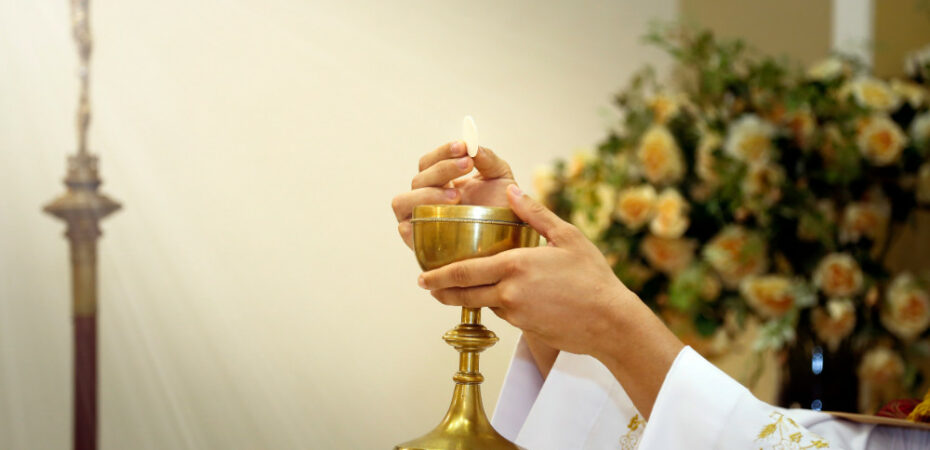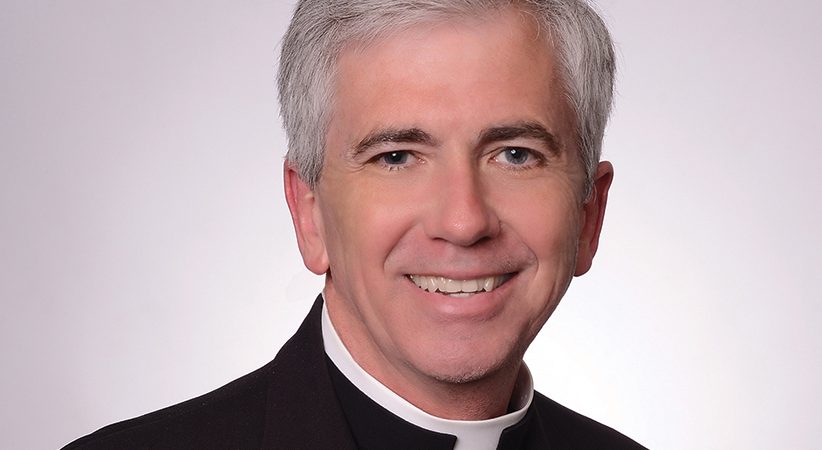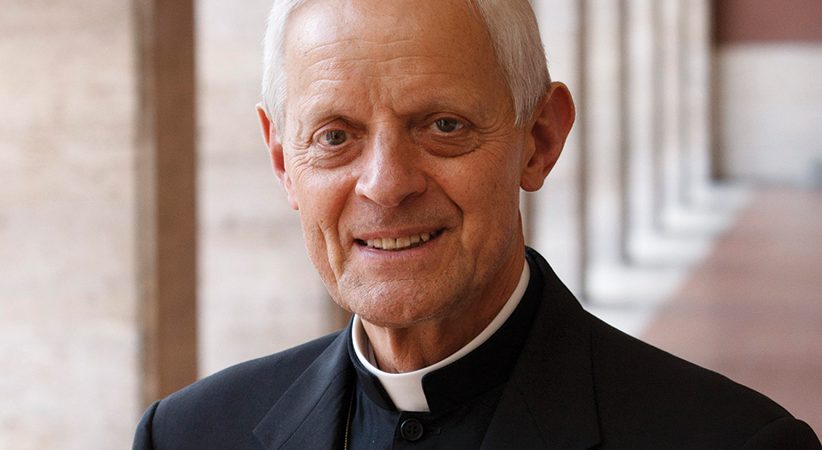Our Doxology
All that we are and all that we do is to give praise to the Triune God
Bishop David J. Bonnar Comments Off on Our Doxology
 When I was a little boy, I vividly remember attending holy Mass every Sunday as a family. Typically, we sat in the first pew. My parents wanted us to be close to the action. At a very young age, I came to appreciate the beauty and mystery of the Mass. In fact, I was so drawn to the Mass that, at the age of 7, I would pretend I was a priest celebrating Mass with my younger brother as the altar server.
When I was a little boy, I vividly remember attending holy Mass every Sunday as a family. Typically, we sat in the first pew. My parents wanted us to be close to the action. At a very young age, I came to appreciate the beauty and mystery of the Mass. In fact, I was so drawn to the Mass that, at the age of 7, I would pretend I was a priest celebrating Mass with my younger brother as the altar server.
What always stood out to me in the Mass was the Doxology: “Through him, with him, in him, O God, Almighty Father, in the unity of the Holy Spirit, one God forever and ever. Amen.” I am not so sure that I understood the full meaning of this sacred moment and the words behind them, but I did know that this was a special time in the liturgy. I came to see that these words had a freedom element inasmuch as, at least for a little boy, they signaled that it was time to stop kneeling and stand up to pray the Lord’s Prayer together.
As a priest, I came to treasure this short hymn of praise which concluded the Eucharistic prayer. What an honor it was to sing these words for the first time with brother priests at my ordination Mass.
Throughout my priesthood, I have been always amazed at Masses with multiple priests, and how these men, on cue, sing this liturgical formula together in harmony. These words not only reveal a short hymn of praise to God — Father, Son and Holy Spirit — but they also clearly point to the fraternity and solidarity we share as priests. We, as ordained priests, are the only ones who can say or sing these words. How beautiful it is when we sing together!
What is noteworthy is that the echo of these words ripples into our ministry. All that we do and all that we are is but another way for us to utter these words whose chief purpose is to praise God.
Now that I am a bishop and have had the distinct honor of presiding at liturgies with many priests, I appreciate these words even more. I have come to behold not just the fraternal sense behind these words, but also the collaborative element. Together, in our respective portion of the Lord’s vineyard, we continue the mission of Jesus by teaching, leading and sanctifying. With Jesus, in unison with the Holy Spirit, we offer all glory and honor to God forever and ever.
The faithful, for their part, sign off on this hymn of praise through their shared “Amen.” This “Amen,” which belongs to the people, is their exclamation point to this liturgical formula of praise. Their response to this hymn is a clear expression of us being Church and embracing our respective roles.
When we leave holy Mass, we are sent forth to “glorify God with our lives.” Our lives are to become a doxology. All that we are and all that we do is to give praise to the Triune God. But this is easier said than done, because in our prayer and in our lives we can become self-absorbed to the extent that our thoughts of praising God can be diminished.
Every day when we pray the invitatory psalm, we begin by saying, “Lord, open my lips.” As we say those four words, it serves as a good touchstone, for us to ask God to open our lips so that we can give praise to him who is the source of all our blessings.
Looking back at those earlier years, I will never forget the old hymn “Praise to the Lord,” which just built on the whole idea of giving praise to God. We can never praise God enough. Each verse of that hymn calls one to give praise, but the fourth verse says it all: “Praise to the Lord! Oh let all that is in me adore him! All that hath life and breath come now with praises before him! Let the Amen sound from his people again, gladly for aye we adore him.”
With every breath and step, may we give praise to our God — Father, Son and Holy Spirit.
BISHOP DAVID J. BONNAR, editor of The Priest, is bishop of the Diocese of Youngstown.





